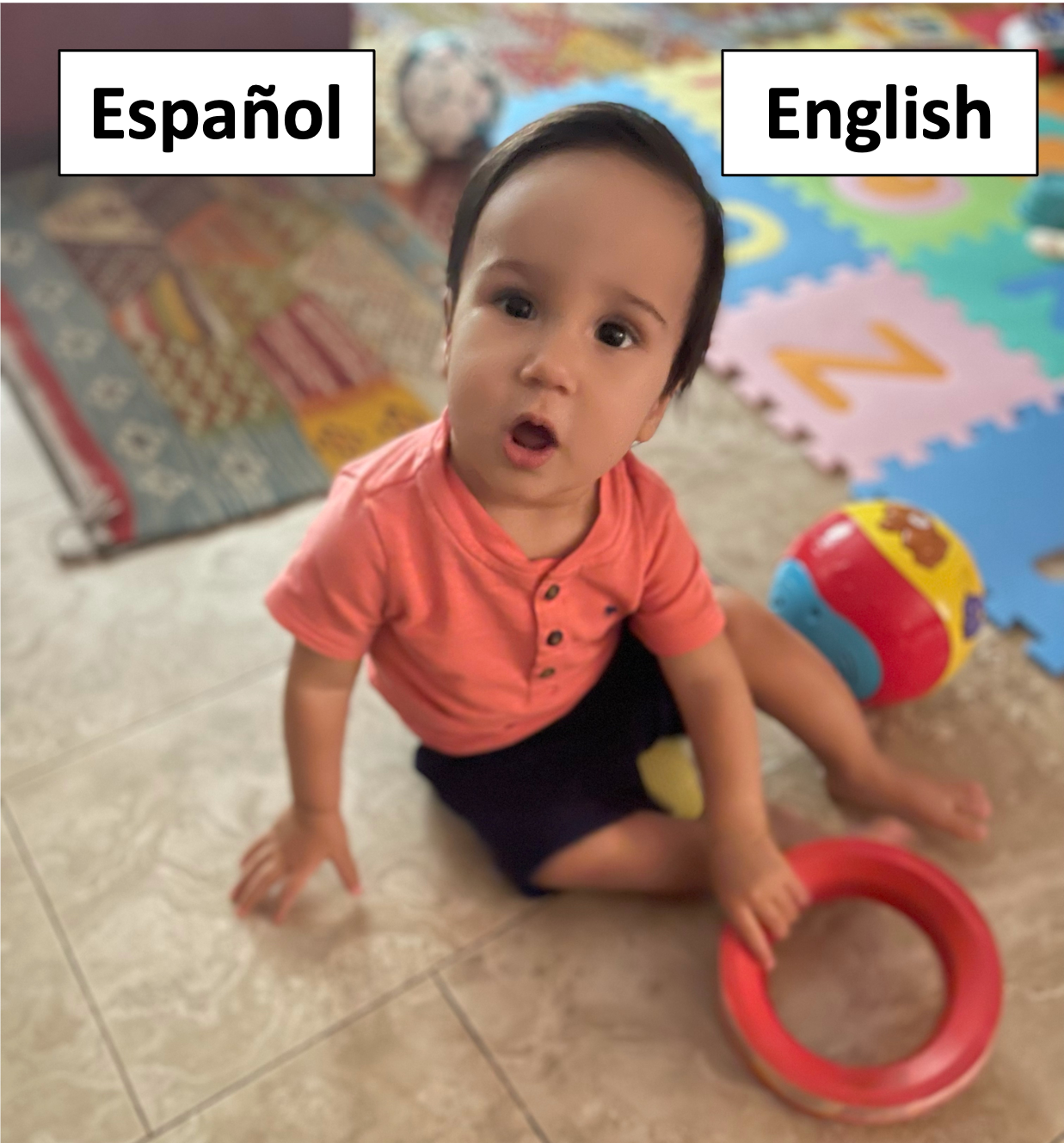
Our research is focused on understanding how cognition and experience support word learning in infants, children, and adults from bilingual and monolingual backgrounds. We use both experimental and observational methods to conduct our research.
Below you will find descriptions of a few of our ongoing research studies.
Learning words from monolingual vs. bilingual environments
How do children learn the meanings of words when in a bilingual versus a monolingual environment? How does this ability change with age? In a series of studies, our lab is exploring how children learn the names of novel objects from ambiguous naming events that either resemble a monolingual or a bilingual environment. We are conducting these studies using a cross-situational word learning task, and test children’s learning of the names for the novel objects after training. To understand how this process changes across age, we test a large age range of children (4- to 7-years) and college students who are monolingual or bilingual. Our goal is to pinpoint how monolingual and bilingual word learning scenarios change learning.
This study is being conducted in partnership with the Children’s Museum of Phoenix.
This study has been pre-registered on the Open Science Framework here.
Shared reading of bilingual books
How does bilingualism affect parent-child reading interactions? Parent-child reading interactions provide rich language experiences for children, both with the contents of the book (Benitez et al., 2022) and the speech that caregivers provide to their children during book reading. These exchanges between parents and children aid their literacy development and word learning. We’re particularly interested in how these interactions occur between bilingual parents and their children. In this project, Spanish-English bilingual parents will be asked to read two books to their child: one single-language book (in English or Spanish) and one of two Spanish-English bilingual books. We are curious to see how parents interact with their child based on the languages written in the book.
This project is in collaboration with Developmental Psychologist Dr. Christine Potter from the Children’s Learning Project at University of Texas - El Paso.
This study has been pre-registered on the Open Science Framework here.
The linguistic and social features of bilingual mother-child play
The language that parents speak supports children’s language development, but how do bilingual parents use English and Spanish when speaking to their child? In this project, we are working with an existing large longitudinal data set of Mexican-American mothers and their children (Curci et al., 2020; Winstone et al., 2021). We are focused specifically on studying the linguistic and social interactions between mothers and their child. Using video recordings of mother-child free play, we are learning about the speech that mothers use with their child and the interactions between English and Spanish language use. Our goal is to identify the caregiver language behaviors that best support young children’s emerging bilingual language skills.
This study is being conducted using an existing data set from an ongoing longitudinal project set up to examine mental health and well being, Las Madres Nuevas.
Parent-child play with familiar and unfamiliar objects
Parent-child toy play provides an important context for learning words (Tamis-LeMonda et al., 2019). Controlled laboratory experiments have demonstrated that young children rapidly learn a novel name for a novel object with only a few exposures (Benitez & Saffran, 2018). However, few studies have examined how language and play are structured between parents and children for optimal word learning when an unfamiliar object is introduced (Danis, 1997; Chen et al., 2021). To better understand how language and actions may promote learning about unfamiliar objects, this study will investigate how caregiver-child dyads play, talk, and interact with familiar and unfamiliar objects.
This study is being conducted in collaboration with Developmental Psychologist Dr. Kelsey Lucca and her team at the Emerging Minds Lab.






